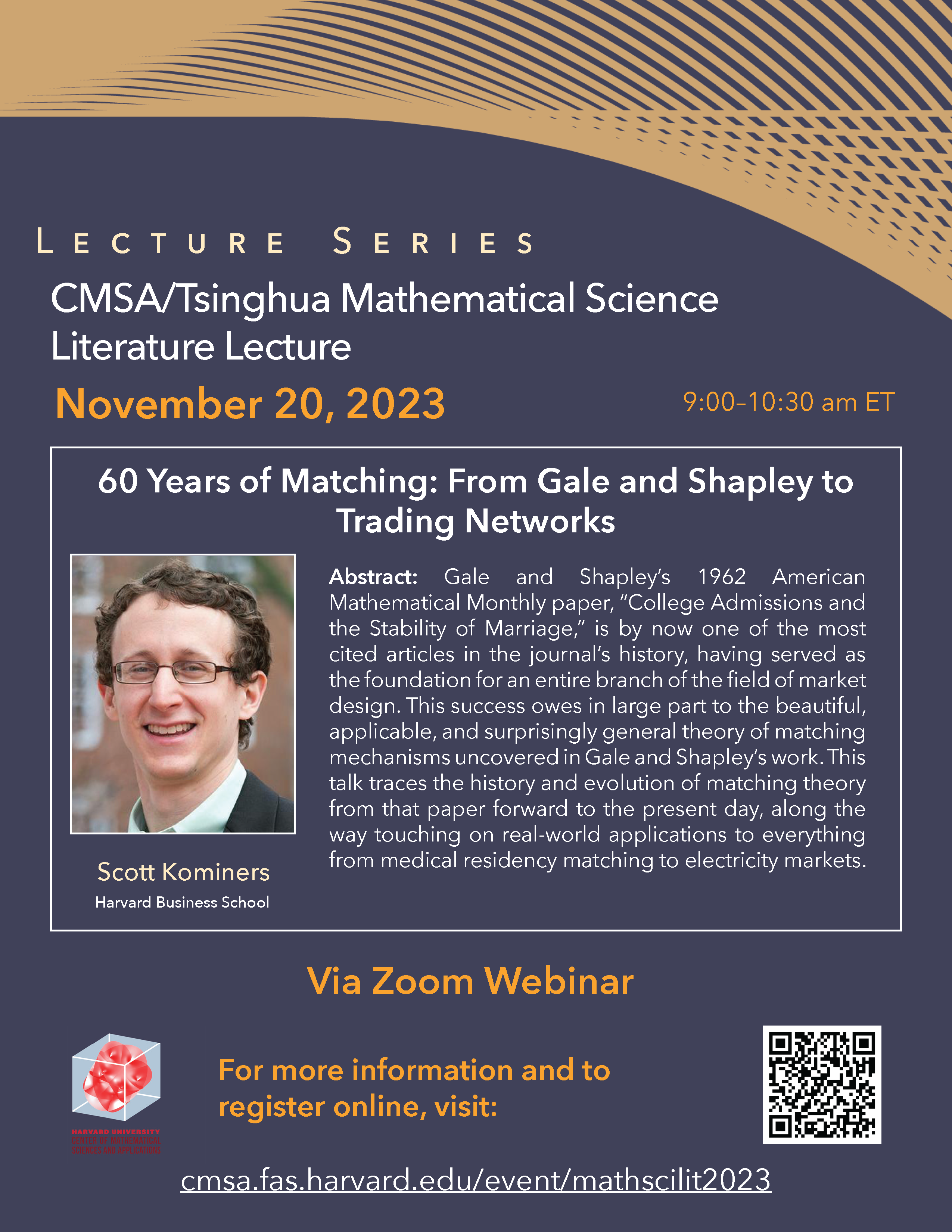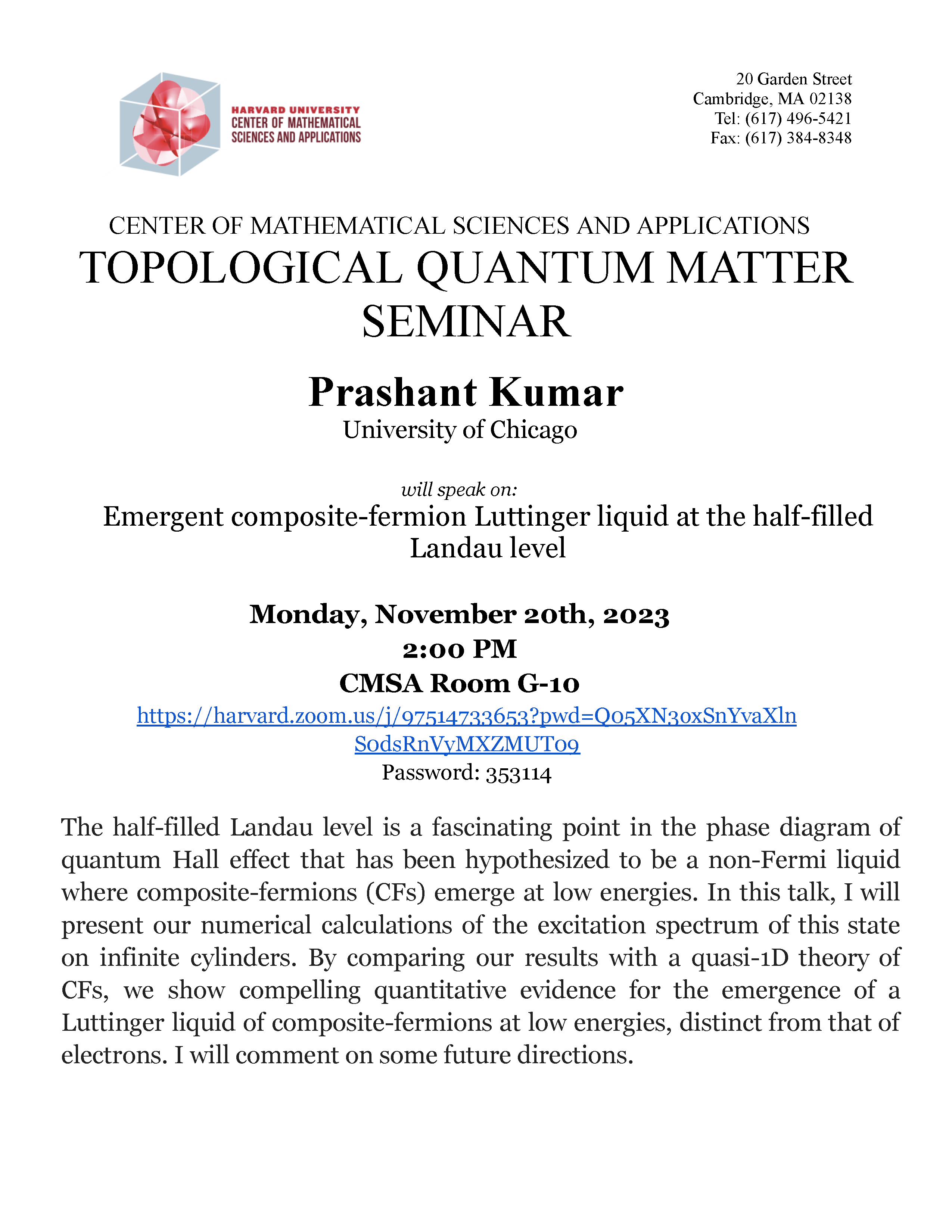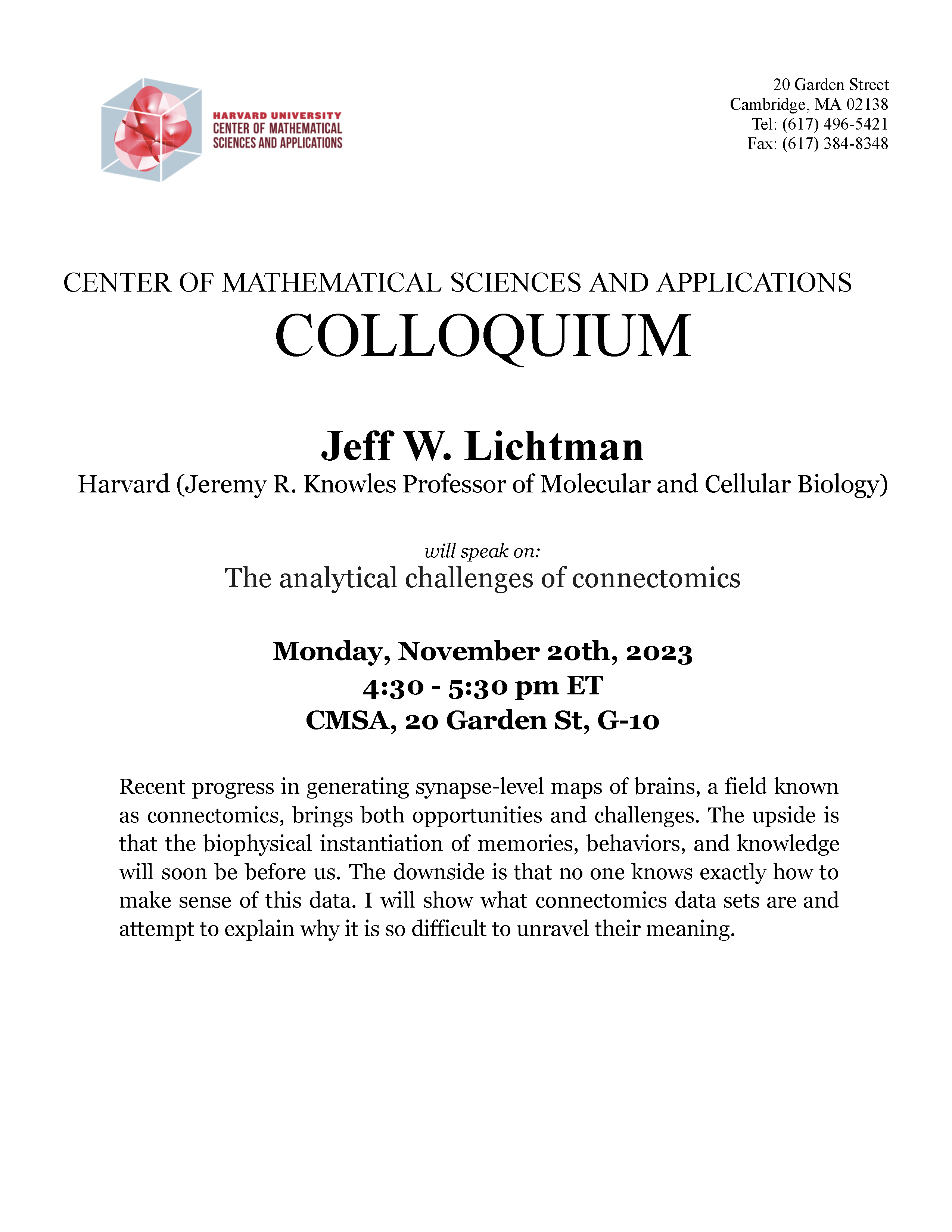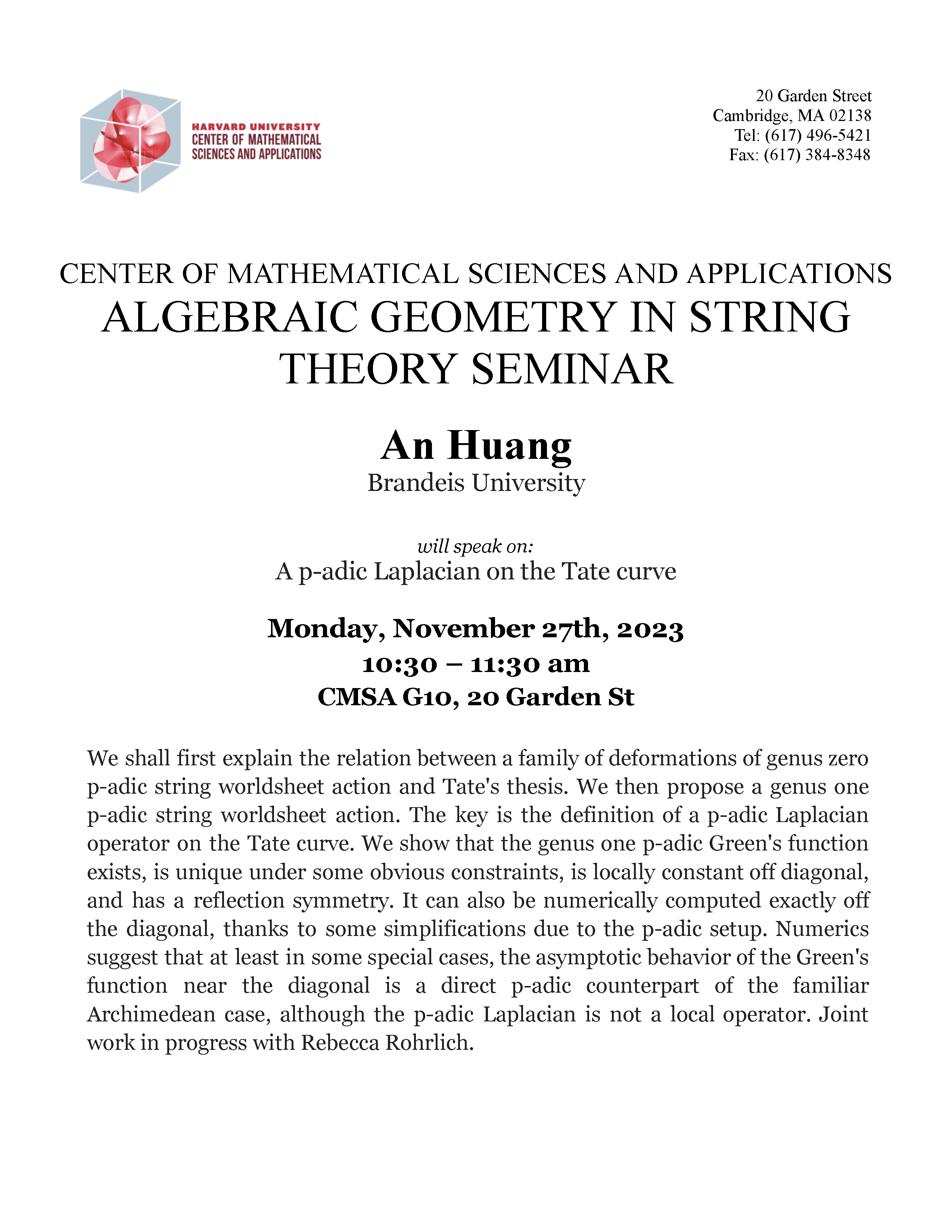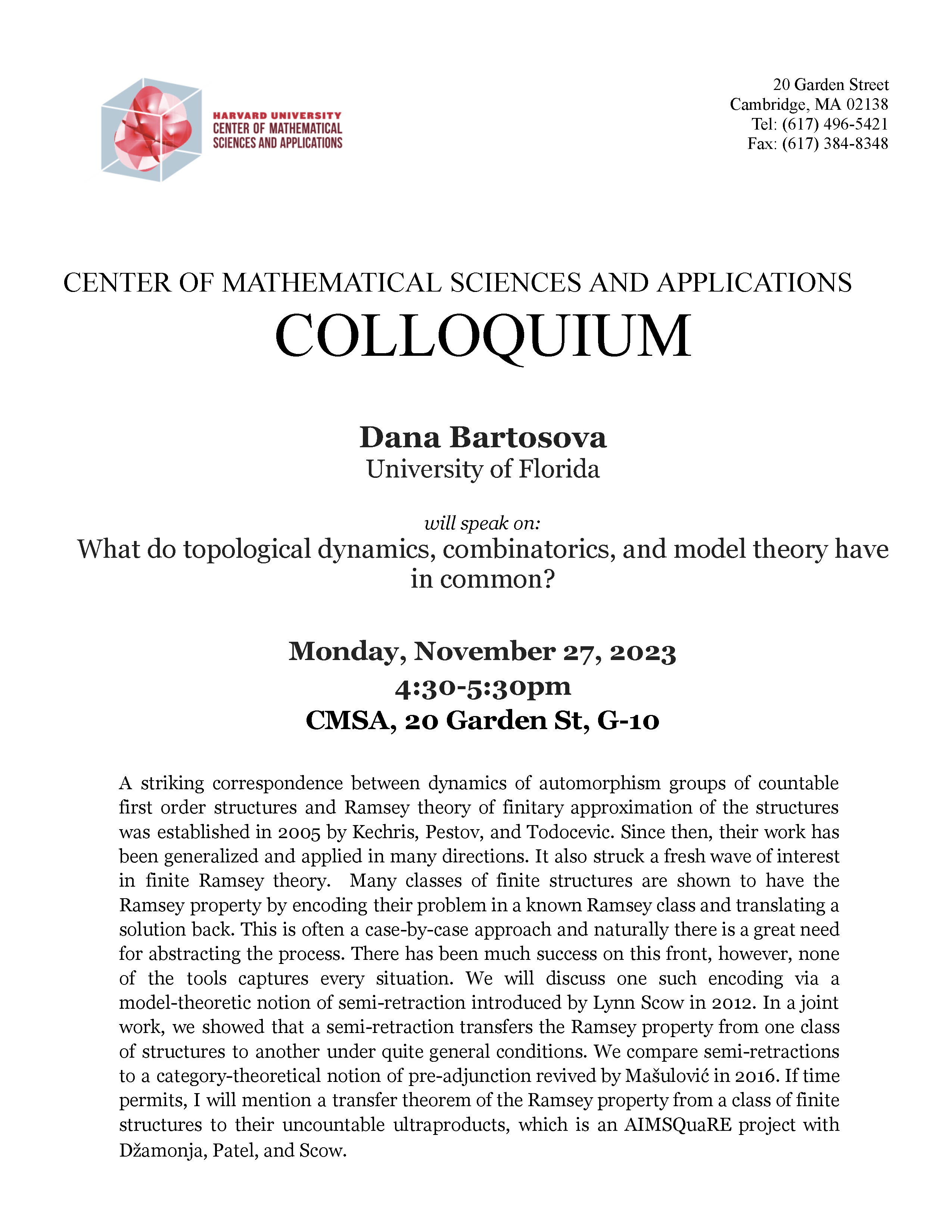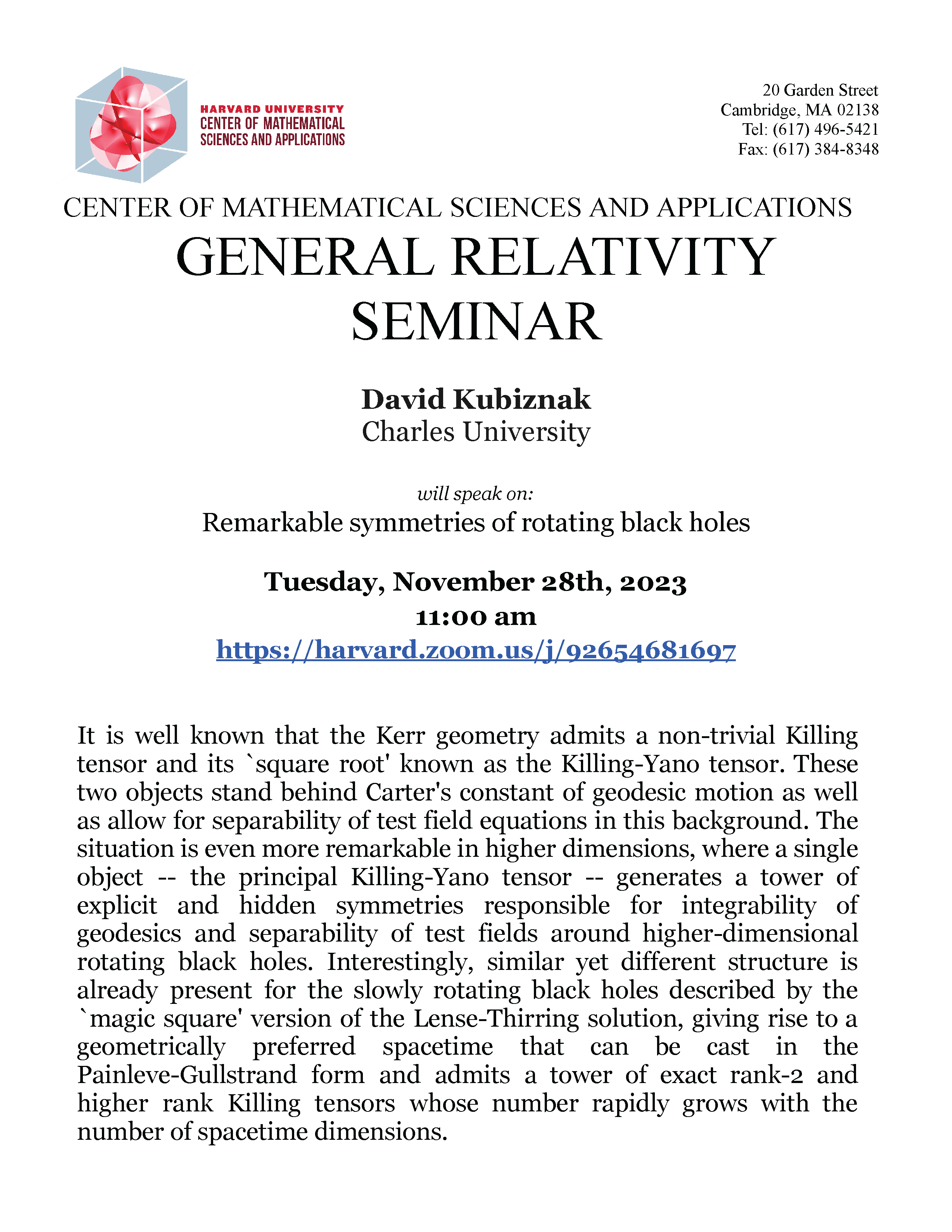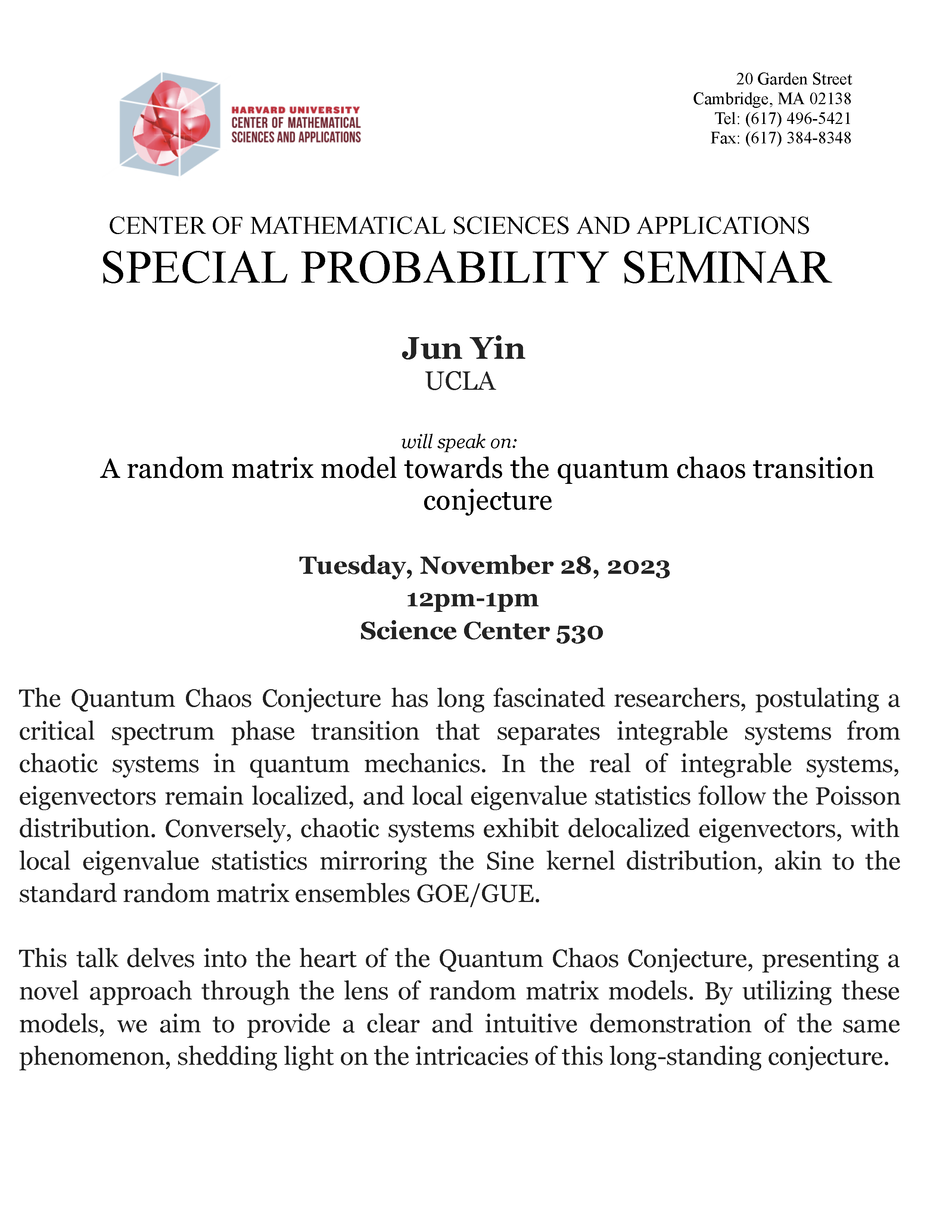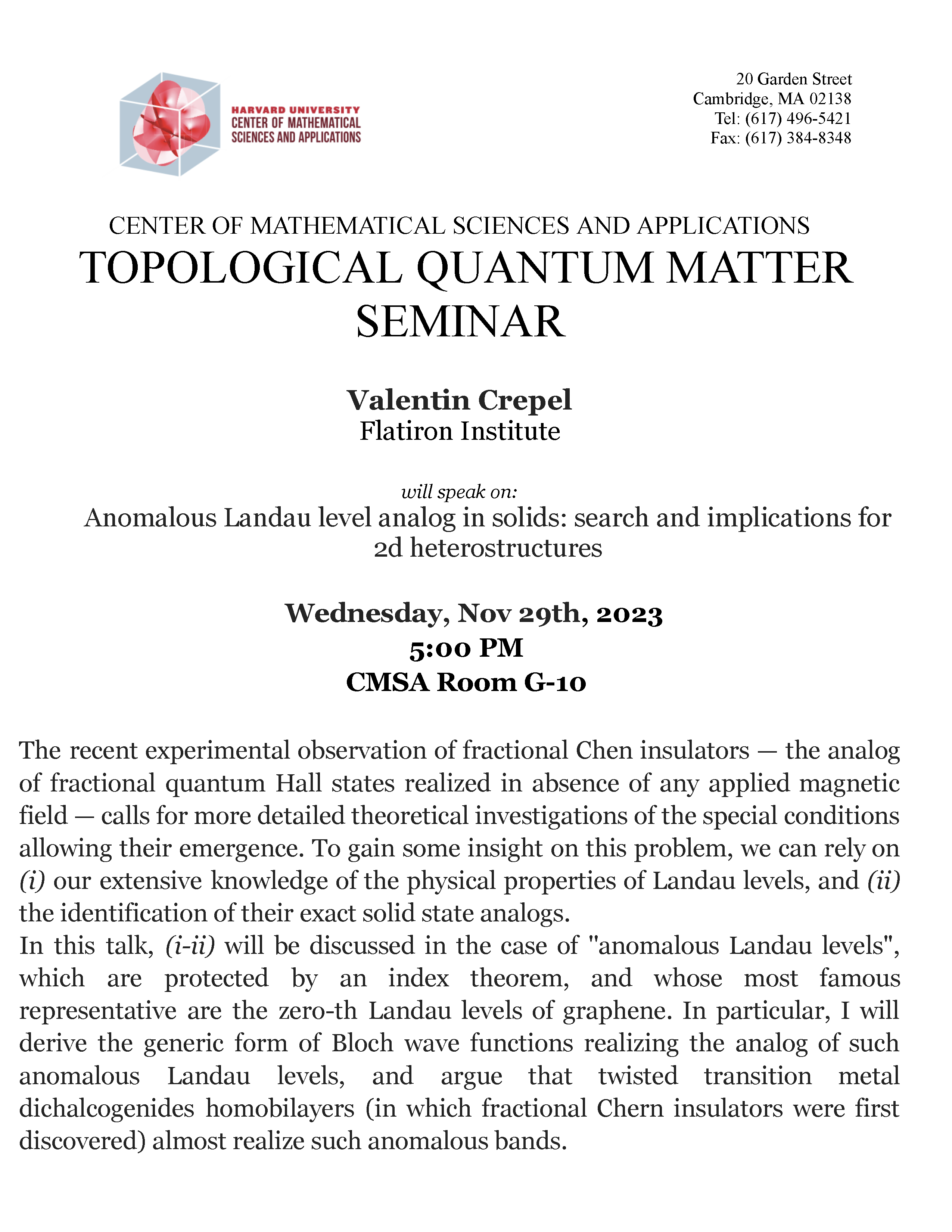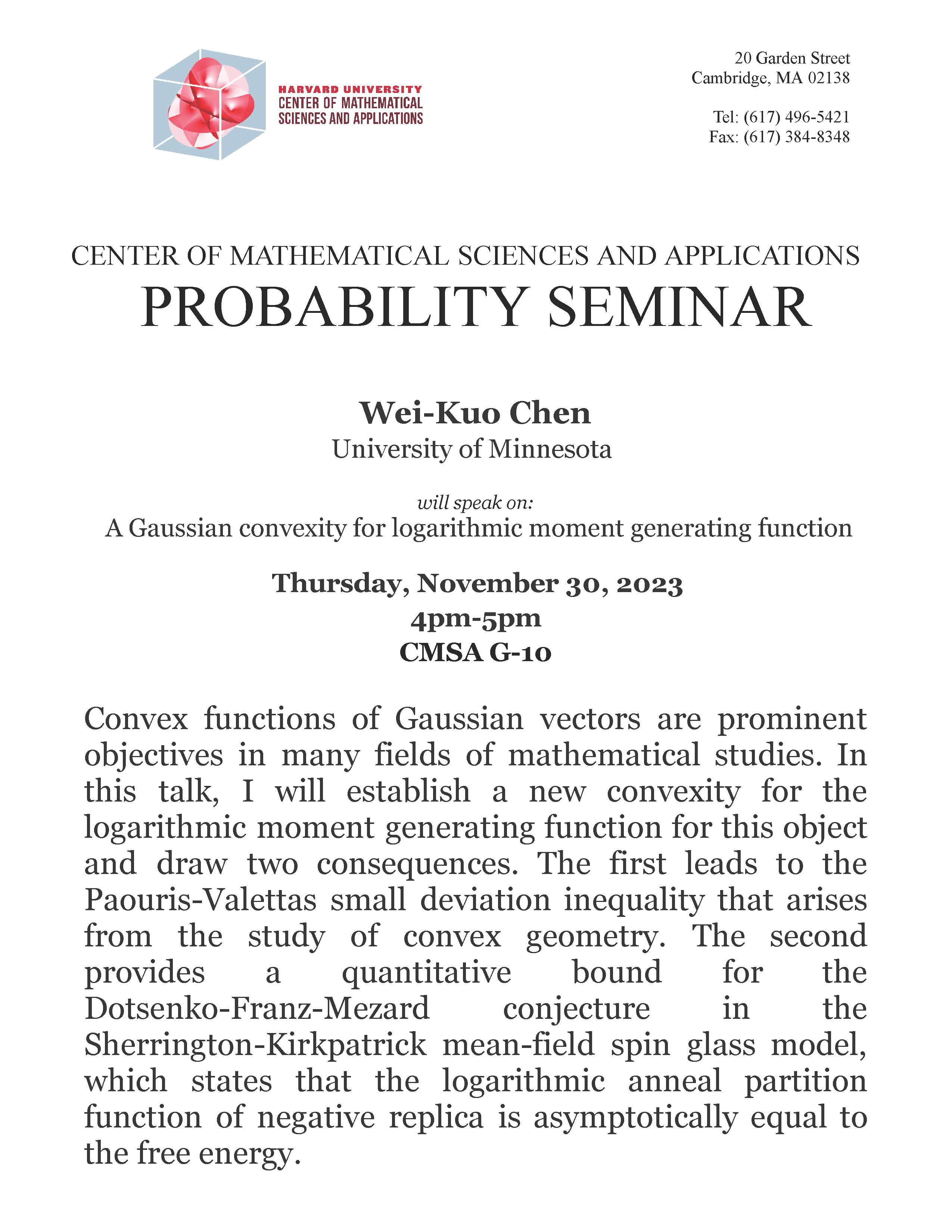A quasi-local mass in general relativity
CMSA Room G10 CMSA, 20 Garden Street, Cambridge, MA, United StatesMember Seminar Speaker: Aghil Alaee Title: A quasi-local mass in general relativity Abstract: One of the fundamental open problems in geometric analysis and mathematical relativity is constructing a (universal) energy/mass quantity to compute the energy/mass of a finite region of spacetime, which can include a star, black hole, or galaxy. We define a new gauge-independent quasi-local mass […]

